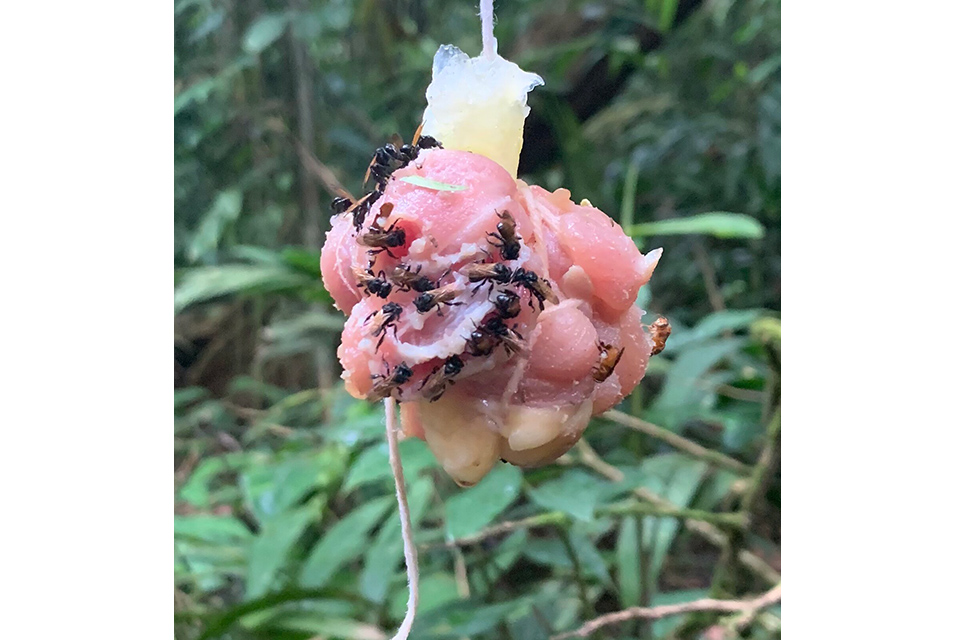LOS ANGELES, CA.- Since they hit the market, e-cigarettes have been touted as a safe alternative to tobacco cigarettes for adult smokers. When research began to suggest otherwise, many questioned whether smoking was still to blame for adverse effects, since most vapers are either "dual users" who also smoke cigarettes or have a prior history of smoking.
Now, a team of researchers at the
Keck School of Medicine of USC has demonstrated that—independent of the effects of prior smoking—using e-cigarettes is linked to adverse biological changes that can cause disease. The study, published in Scientific Reports, revealed that vapers experience a similar pattern of changes to gene regulation as smokers do, although the changes are more extensive in people who smoke.
"Our study, for the first time, investigates the biological effects of vaping in adult e-cigarette users, while simultaneously accounting for their past smoking exposure," said Ahmad Besaratinia, Ph.D., corresponding author and professor of research population and public health sciences at the Keck School of Medicine. "Our data indicate that vaping, much like smoking, is associated with dysregulation of mitochondrial genes and disruption of molecular pathways involved in immunity and the inflammatory response, which govern health versus disease state."
Isolating the effects of vaping from smoking
The researchers recruited a diverse group of 82 healthy adults and separated them into three categories: current vapers, with and without a prior history of smoking; people who exclusively smoke cigarettes; and a control group of never-smokers and never-vapers. They conducted comprehensive in-person interviews to get a detailed vaping and smoking history from each participant. The team verified the histories by performing biochemical analyses on the participants' blood to measure the concentration of cotinine, a breakdown product of nicotine.
Using next generation sequencing and bioinformatic data analysis, researchers then conducted a genome-wide search for changes in gene regulation in the blood cells of each of the participants. When the normal regulation of genes is disrupted and genes become dysregulated, that dysregulation can interfere with gene function, leading to disease.
For current vapers, they further performed computational modeling to determine whether the detected gene dysregulation was associated with the intensity and duration of their current vaping or the intensity and duration of their past smoking.
"We found that more than 80% of gene dysregulation in vapers correlated with the intensity and duration of current vaping," said Besaratinia. "Whereas none of the detected gene dysregulation in vapers correlated to their prior smoking intensity or duration."
Effects of vaping mirror those of smoking
In previous research, Besaratinia and his team have shown that e-cigarette users develop some of the same cancer-related molecular changes in oral tissue as cigarette smokers. They also discovered vapers had the same kind of cancer-linked chemical changes to their genome as smokers.
In this study, they found that, in both vapers and smokers, mitochondrial genes are preferential targets of gene dysregulation. They also found that vapers and smokers had significant dysregulation of immune response genes.
Besaratinia says the findings are not only novel and significant, but they are also interrelated, since growing evidence shows that mitochondria play a critical role in immunity and inflammation.
"When mitochondria become dysfunctional, they release key molecules," said Besaratinia. "The released molecules can function as signals for the immune system, triggering an immune response that leads to inflammation, which is not only important for maintaining health but also plays a critical role in the development of various diseases, such as cardiovascular and respiratory diseases, metabolic diseases, and cancer."
Adults aren't the only ones vaping. The Centers for Disease Control estimates that more than 2 million middle and high school students in the U.S. report using e-cigarettes. Besaratinia says that this is one of the main reasons why the team's research is so critical to informing policy around vaping.
"Given the popularity of e-cigarettes among young never-smokers, our findings will be of importance to the regulatory agencies," said Besaratinia. "To protect public health, these agencies are in urgent need of scientific evidence to inform the regulation of the manufacture, distribution, and marketing of e-cigarettes."
Next, the team plans to identify and investigate chemicals common to both e-cigarette vapor and cigarette smoke to find out which ones might be causing similar adverse effects in vapers and smokers.










